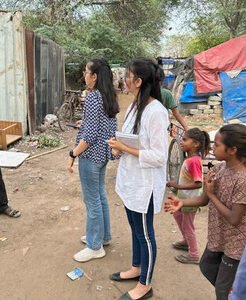A look into the 'bottom rung' of our society
Asha, a resident of an illegal colony of sanitation workers in Ahmedabad, sits down with her two children to talk about her life. Her job is to take care of her entire family, cook food, keep the house tidy and then after completing a list of exhausting activities — sort the waste that her husband and mother-in-law bring in after a day of grueling work.
The colony Asha lives in consists of around 100 people who do the same job: collect waste from streets, sort it into categories and then sell it. They set out everyday with a garbage bag and pick up all the waste that they can spot and carry. The challenges in their way are endless — the bags get too heavy to carry and force them to return home, the working conditions get extremely mucky and unhygienic during the monsoon and they are constantly at risk of heatstroke during the excruciatingly hot Indian summers. They do not work under a contract or a payroll, usually only working to bring in the amount of money they need that day. All of the surveyed workers said they buy the garbage bags and other equipment themselves, and have to learn how to do their work through a family member.
The companies they sell the waste to — especially the plastic recycling companies — often rip them off by paying much less than the real value of the waste. The price fluctuates enough that this goes unnoticed by the government, but not the workers. They know, but they are helpless. It doesn’t help that these people are so under the radar that the ruling government doesn’t acknowledge them even during election season — a tactic all political parties are notoriously known for practicing.
On being asked whether she wants to do something else, Asha says that she has no wish to even leave her house at times, let alone learning a new skill and then implementing it in another job. This reluctance to change their lifestyle and learn new skills is a recurrent theme in the answers of the other surveyed workers. They would rather have been born in some other profession than changing it now. With the hopelessness flavored air that they breathe, is their complacency really something we can blame?



